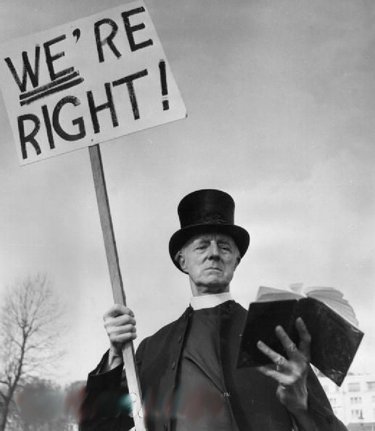Archive for November, 2018
29 Nov 2018


Kevin D. Williamson points out that saving GM cost a lot and did not actually work.
General Motors just shared some very bad news: It is closing five factories in the United States and Canada, eliminating 15 percent of its work force (and 25 percent of its executives), and getting out of the passenger-car business almost entirely to focus on SUVs and trucks. President Donald Trump threw a fit, but GM shrugged him off. The facts are the facts.
What did U.S. taxpayers get for their $11.2 billion bailout of GM? About ten years of business-as-usual, and one very expensive lesson.
Bailouts don’t work.
Never mind the moral hazard, the rent-seeking, the cronyism and the favoritism, and all of the inevitable corruption that inevitably accompanies multibillion-dollar sweetheart deals between Big Business and Big Government. Set aside the ethical questions entirely and focus on the mechanics: Businesses such as GM get into trouble not because of one-time events in the wider economic environment, but because they are so weak as businesses that they cannot weather one-time events in the wider economic environment. GM’s sedan business is weak because GM’s sedans are weak: Virtually all of the best-selling sedans in the United States are made by Toyota, Honda, and Nissan. The lower and middle sections of the market are dominated by Asia, and the high end of the market by Europe: Mercedes, Audi, BMW. GM can’t compete with the Honda Civic at its price point or with the Audi A7 at its price point. Consumers like what they like, and they aren’t buying what GM is selling.
RTWT
28 Nov 2018


Babylon Bee:
WASHINGTON, D.C.—Melania Trump is causing controversy yet again, this time for decorating the White House with the skulls of her decapitated enemies.
While past first ladies have decorated the White House with traditional Christmas wreaths, trees, holly, and lights, Trump opted to mount the heads of her slain foes throughout the executive residence “as a warning.”
“Did she go too far?” one pundit on CNN pondered. “I gotta say, these heads don’t exactly say ‘peace’ and ‘love’ like a good, old-fashioned wreath would, you know?”
Speaking to reporters, the First Lady commented, “The skulls bring out the festive joy of the holiday season in our decor. We’re reminded to treasure what we have when we see the skulls of our conquered foes every time we walk through these sacred halls.”
“It’s all to point us to the reason for the season,” she added.
When asked what the “reason for the season” is, she stated, “To crush your enemies, to see them driven before you, and to hear the lamentations of their women.”
——————
This satire piece was occasioned by all this.
26 Nov 2018


“Andrea Long Chu”.
Yesterday’s NYT’s transitioning person’s editorial by a deeply disturbed guy who calls himself Andrea Long Chu, discussed previously here, rather lit Rod Dreher’s fuse and the usually meek and depressive Rod comes out sounding like Cato the Elder on a cranky day.
Chu says that the treatments doctors have given him are making him sicker, even making him desire suicide. But if he wants to suffer and to die, then he should have that right. Satisfying desire is the only thing that matters.
This poor man with asparagus-colored hair is going to submit to mutilation next week, and will have to spend the rest of his life inserting an object into the wound surgeons will have made in his pubic area, to prevent his body from healing itself. This man — “like many of my trans friends†— expects this medical procedure to make him no happier, and in fact may make him feel more miserable, even suicidal.
But he wants it. People like him want all of society to upend its laws, its customs, and its norms to facilitate that desire, and to act like there’s nothing wrong with it. And society is giving them what they want, and punishing those who deny that this is paradise.
Freeing the autonomous will from sex and gender norms is the summum bonum of contemporary American progressivism. The insatiably miserable Andrea Long Chu is its incarnation. …
We have gone beyond gay people to allow transgender people — fewer than one percent of the population — to change America forever.
Progressives! They make a desert and call it peace. They carve a gash and call it a vagina. They make us all insane, and call the sane crazy.
————————
The less attractive, but more obviously masculine, picture of “Andrea Long Chu” above comes, hilariously enough, from his “Buy Me a New Body” Go Fund Me site.
He wants $30,000 to mutilate himself with, and 271 people have already obligingly ponied up $10,998 in the course of three months.
26 Nov 2018


Grub Street has bad news for the residents of Portland and Brooklyn.
There was a time, not so long ago, when Pabst Blue Ribbon and the term “hipster†were more or less synonymous. The watery budget brew was catnip for urban creatives, and business was thriving. In 2003, when the Times first took notice of PBR’s bike-messenger cachet, the paper reported that sales had risen 5.3 percent the year before. It was the start of a boom. By 2009, sales were growing by 25 percent. In 2011, someone went on record with the Chicago Tribune to call it “the nectar of the hipster gods.†David Chang put it on tap when he opened a Momofuku outpost in Toronto.
The beer’s cultural bona fides were always something of an instant cliché, but now PBR is in danger of receiving the ultimate badge of hipster credibility: being killed by big business.
Despite the name of the Pabst Brewing Company, they don’t brew the PBR that was beloved by everyone living in Williamsburg in 2009. For years, Pabst has outsourced its beer-making to MillerCoors, a relationship that has suddenly gone sour. The two companies are locked in a half-billion-dollar court battle that, some say, could spell the end of PBR, as well as many other beer brands that Pabst owns. Pabst currently pays MillerCoors nearly $80 million a year to brew its beer; MillerCoors says that, after 2020, it may no longer have the necessary resources available, and is threatening to let the contract expire unless Pabst agrees to a fee that’s closer to $200 million per year, an amount that Pabst contends would “bankrupt us three times over.†…
Pabst closed its flagship Milwaukee brewery in 1996. When Pabst’s last brewery, in Fogelsville, Pennsylvania, closed in 2001, it shifted brewing responsibilities to Miller. In the meantime, Pabst was also focused on buying plenty of beer brands that weren’t PBR, including Lone Star, Schlitz, and Schaefer (“the one beer to have when you’re having more than oneâ€). “We own 77 brands, and 50 of them are dormant,†current owner Eugene Kashper told a New Jersey paper in 2015. “We have a virtual monopoly on American heritage brands.â€
What Pabst doesn’t own is a brewing complex to make its beer. The company did recently offer $100 million for a shuttered facility in North Carolina, but that brewery’s owner, which is — wait for it — MillerCoors, made a counter offer of $750 million, effectively ending negotiations.
Pabst is stuck. Its products are brewed, packaged, and distributed by a rival who seems to have no interest and, MillerCoors’s lawyers argue, no obligation to keep the relationship alive. Now, according to the AP, Pabst “is seeking more than $400 million in damages and for MillerCoors to be ordered to honor its contract.â€
RTWT
Hmmm. Hiring your competitor to make your product, then sitting back and essentially collecting rent, has a down-side! Who would have imagined?
26 Nov 2018


In the American Conservative, Robert W. Merry has a thoughtful essay contrasting the original American WASP elite with its contemporary successors.
Today we look back on that old elite, if we look back on it at all, as a relic of the distant past. But this development—the old elite’s slow loss of self-confidence after World War II and then its obliteration as a cultural force—represents a profound transformation in America’s social history. What emerged was a new country with a new elite.
In place of the old-school folkways and legends and values of the Anglo-Saxons, we have what is known as a meritocratic system dominated by a class of strivers who have managed to scope out the new system and rise to the top. …
[A]s far back as 1995, social commentator Christopher Lasch, in a book entitled The Revolt of the Elites and the Betrayal of Democracy (published posthumously), excoriated what he called America’s “new aristocracy of brains.†He wrote: “There has always been a privileged class, even in America, but it has never been so dangerously isolated from its surroundings.†He foresaw an emerging chasm between the country’s new upper class and its great mass of citizens. “The new elites,†he wrote, “are in revolt against ‘Middle America,’ as they imagine it: a nation technologically backward, politically reactionary, repressive in its sexual morality, middlebrow in its tastes, smug and complacent, dull and dowdy. 
America’s Anglo-Saxon elite both reflected and perpetuated Anglo-Saxon sensibilities on the Continent for some 300 years. And it did so as its proportion of the country’s population declined steadily throughout that period. Given that, [Benjamin] Schwarz [in “The Diversity Myth,” published in The Atlantic in 1995] suggests that the American elite’s ability to “dominate American cultural and political life for three centuries—…in fact define what it meant to be an American—is a remarkable achievement.†It was an achievement of cultural identity and pride.
It couldn’t last forever. The question was—and remains—why. Alsop speculated that a significant factor was the decline of Great Britain as a global power, which undermined a significant element of the elite’s sense of identity. He surmised that the “erosion of authority†that transformed American society in a host of ways in the 1960s (and later the 1970s) may have been a factor as well. But probably the largest contributor was demographics. America was becoming less and less an Anglo-Saxon country, and less and less did it look to its old elite for guidance and governance. New impulses, attitudes, and agendas—precisely what Theodore Roosevelt had warned against—were making their way into the American consciousness with more diverse waves of immigration, and these had a profound effect upon the nation. …
[In terms] of what’s going on in America today. Christopher Lasch got closer to the heart of it in The Revolt of the Elites. To Lasch the problem doesn’t reside simply in the distribution of wealth or income, although these are not insignificant. It goes much deeper, far into the civic consciousness of the elite and the nation at large. The destructive nature of the new elite, by his reckoning, touches on profound questions of who we are, where we are going as a nation and society, and how we reconcile our present with our past and our future.
Like Stewart, Lasch sees major civic problems festering in America under the new elite. He views many of them, though not all, as economic in nature. And he believes that the new elites, in pursuing their positions of economic and social privilege, have ignored the fate of those below. “Elites, who define the issues, have lost touch with the people,†he writes.
But he goes further, painting a picture of an elite that harbors little sentiment of noblesse oblige toward the common people; that has little regard for democratic ideals; that favors globalism over patriotism; that accepts assaults on free speech in the academy; that sneeringly assaults the national heritage and the foundations of Western thought; that promotes a politics of diversity and a preoccupation with “self-esteem†(tied to identity politics) to the detriment of civic harmony; that fosters civic rancor through its open borders advocacy; and that employs powerful weapon-words such as “racist,†“sexist,†and “xenophobic†to stifle debate on matters it wants handled out of established halls of discourse.
In short, Lasch portrays an elite that has cut itself off from its own nation and civilization. He invokes Jose Ortega y Gasset’s famous book from the 1930s, The Revolt of the Masses, written in the era of the Bolshevik Revolution and the rise of European fascism. Ortega saw the Western crisis of that time as a product of the “political domination of the masses…the spoiled child of human history.†Now the spoiled child, says Lasch, is the new elite.
“Today,†he writes, “it is the elites, however—those who control the international flow of money and information, preside over philanthropic foundations and institutions of higher learning, manage the instruments of cultural production and thus set the terms of public debate—that have lost faith in the values, or what remains of them, of the West.†Indeed, he adds that for many of these people the very term “Western civilization†now “calls to mind an organized system of domination designed to enforce conformity to bourgeois values and to keep the victims of patriarchal oppression—women, children, homosexuals, people of color—in a permanent state of subjection.â€
RTWT
25 Nov 2018


“Andrea Long Chu“
How does it feel to live in a time in which the grand establishment newspaper of record will publish, with grave seriousness and implicit nodding approval, the self-pitying posturings of a crazy who has created a personal identity and political ideology based on maladjustment and futile, self-destructive efforts to rebel against Nature and Reality?
Next Thursday, I will get a vagina. The procedure will last around six hours, and I will be in recovery for at least three months. Until the day I die, my body will regard the vagina as a wound; as a result, it will require regular, painful attention to maintain. This is what I want, but there is no guarantee it will make me happier. In fact, I don’t expect it to. That shouldn’t disqualify me from getting it.
I like to say that being trans is the second-worst thing that ever happened to me. (The worst was being born a boy.) …
I feel demonstrably worse since I started on hormones. One reason is that, absent the levies of the closet, years of repressed longing for the girlhood I never had have flooded my consciousness. I am a marshland of regret. Another reason is that I take estrogen — effectively, delayed-release sadness, a little aquamarine pill that more or less guarantees a good weep within six to eight hours.
Like many of my trans friends, I’ve watched my dysphoria balloon since I began transition. I now feel very strongly about the length of my index fingers — enough that I will sometimes shyly unthread my hand from my girlfriend’s as we walk down the street. When she tells me I’m beautiful, I resent it. I’ve been outside. I know what beautiful looks like. Don’t patronize me.
I was not suicidal before hormones. Now I often am.
I won’t go through with it, probably. Killing is icky. I tell you this not because I’m cruising for sympathy but to prepare you for what I’m telling you now: I still want this, all of it. I want the tears; I want the pain. Transition doesn’t have to make me happy for me to want it. Left to their own devices, people will rarely pursue what makes them feel good in the long term. Desire and happiness are independent agents.
As long as transgender medicine retains the alleviation of pain as its benchmark of success, it will reserve for itself, with a dictator’s benevolence, the right to withhold care from those who want it. Transgender people have been forced, for decades, to rely for care on a medical establishment that regards them with both suspicion and condescension. And yet as things stand today, there is still only one way to obtain hormones and surgery: to pretend that these treatments will make the pain go away.
The medical maxim “First, do no harm†assumes that health care providers possess both the means and the authority to decide what counts as harm. When doctors and patients disagree, the exercise of this prerogative can, itself, be harmful. Nonmaleficence is a principle violated in its very observation. Its true purpose is not to shield patients from injury but to install the medical professional as a little king of someone else’s body.
Let me be clear: I believe that surgeries of all kinds can and do make an enormous difference in the lives of trans people.
But I also believe that surgery’s only prerequisite should be a simple demonstration of want. Beyond this, no amount of pain, anticipated or continuing, justifies its withholding.
Nothing, not even surgery, will grant me the mute simplicity of having always been a woman. I will live with this, or I won’t. That’s fine. The negative passions — grief, self-loathing, shame, regret — are as much a human right as universal health care, or food. There are no good outcomes in transition. There are only people, begging to be taken seriously.
RTWT
Personally, I think that we sane and normal people have a lot more reason for melancholy based on sheer embarrassment over the contemptible intellectual state of our culture and establishment than does some nutcase who does not like the sexual characteristics he was born with.
I fail to understand how Society and the medical profession and government are all supposed to adapt to whims connected with sex on the part of an infinitesimally small number of deeply neurotic malcontents without feeling exactly the same obligation to “take seriously” and accommodate the wishes of every madman who thinks he is Napoleon.
25 Nov 2018

———————-

25 Nov 2018

Abcedarian‘s tumblr blog offers 321 vintage images of Hell.
24 Nov 2018


This must be the European edition dust jacket.
Hugo Drochon, reviewing Sue Prideaux’s new Nietzsche biography, I Am Dynamite in the Irish Times, explains that this one is a revolutionary revisionist bio that fans of Fred will have to read. I bought mine.
On the morning of January 3rd, 1889 a half-blind German professor, sporting a luxurious moustache, left his lodgings on the third floor of Via Carlo Alberto 6 in Turin. He was used to taking his daily walk through the famous arcades of the city, which shielded him from the light, and along the banks of the river Po. He would walk up to five hours a day, which explained his muscular frame: somewhat in dire contrast to the various illnesses that notoriously plagued his life.
But that day he did not get very far. He walked less than 200m to the Piazza Carignano, and what happened next is the stuff of legend: seeing an old recalcitrant horse being flogged mercilessly by its owner, the professor threw his arms around the horse to protect it – perhaps even whispering “Mother, I have been stupid†in its ear (how can anyone have heard that?) – and collapsing. He was saved from being escorted by two policemen to the asylum by his landlord, Davide Fino, who brought him home. We might never know exactly what happened on that fateful day, but one thing is certain: the productive and intellectual life of the great philosopher Friedrich Nietzsche had come to an end.
In her wonderfully gripping new biography of Nietzsche – the type you stay in bed all Sunday just to finish – Sue Prideaux casts doubt on this story. Indeed, the horse only makes an appearance in the legend 11 years later – in 1900, the year of Nietzsche’s death – when a journalist interviewed Fino, the landlord, about the events of the day. And only in the 1930s – more than 40 years later – do we hear about the horse being beaten and Nietzsche breaking down in tears; this time in an interview with Fino’s son, Ernesto, who would have been about 14 at the time.
Despite no corroboration on the German side – from neither his sister nor his friend Overbeck, who brought him back to Basle – the “Nietzsche horse memeâ€, to put it in today’s terms, has proved hugely popular. It features in Milan Kundera’s The Unbearable Lightness of Being, and the horse itself has got its own biopic in the form of an 2011 film The Turin Horse by Hungarian film-makers Béla Tarr and Ãgnes Hranitzky, which proposes a storyline of what happened to the horse after the event. To make things even stranger, the story of a horse being flogged to death appears in Nietzsche’s favourite author Fyodor Dostoyevsky’s Crime and Punishment, written when the latter was 44: exactly Nietzsche’s age when he broke down.
Prideaux casts even more doubt on the cause usually attributed to this insanity: syphilis. Popularised by Thomas Mann’s novel Doctor Faustus, which has a Nietzsche-like character contract syphilis in a brothel, the evidence simply doesn’t stack up. Although diagnosed as such when admitted to the asylum in Basle, Nietzsche showed none of symptoms now associated with it: no tremor, faceless expression or slurred speech. If he was at an advanced stage of dementia caused by syphilis, Nietzsche should have died within the next two years; five max. He lived for another 11. The two infections he told the doctors about were for gonorrhoea, contracted when he was a medical orderly during the Franco-Prussian War.
Instead Prideaux puts forward the – correct – view that Nietzsche probably died of a brain tumour, the same “softening of the brain†that had taken away his father, a rural pastor, when Nietzsche was a boy. Indeed both sides of the family showed signs of neurological problems, or of suffering of “nervesâ€, as one put it at the time. Nietzsche’s younger sister Elisabeth certainly seemed prone, in posthumously making him palatable to the Nazis in her Nietzsche Archive in Weimar, to a degree of megalomania herself (she had herself buried in the middle of the Nietzsche family burial ground, on the spot originally reserved for her brother).
At stake is whether Nietzsche’s writings, and especially his theory of the Übermensch, should just be dismissed as the ravings of a madman. Here the story of the horse takes on particular importance: if true it would mean Nietzsche repented his views, asking for forgiveness for having demanded that modern man should “overcome†himself, to become “hard†by eschewing pity. This is certainly Kundera’s view, and it makes for a much nicer, more docile Nietzsche. But if there is no horse, or at least if there is no sobbing and protecting a flogged horse – that there is a mental breakdown is beyond doubt – then Nietzsche means what he says and his thinking is, in the words of Prideaux, dynamite.
RTWT
/div>

Feeds
|















